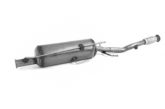Since the UK electorate voted to leave the EU on Thursday, Croner has been receiving calls from clients concerned about the short and long term impact on their organisation.
In this expert briefing we consider the impact on employment and health & safety law and offer advice to those businesses which currently employ foreign workers.
What will happen to the foreign workers I employ?
The most significant effects on the UK workforce are likely to be in terms of jobs won or lost. It is estimated that around two million EU Nationals work in the UK. Indeed, we are already receiving calls from industries where they have a high percentage of EU and EEA workers, such as the agriculture, care and service sectors.
The UK Government will now be able to control borders with a view to reducing immigration. However, work arrangements will have to be re-negotiated with the EU and its Member States although it is doubtful if the new arrangements would simply replicate the present freedom of movement. If policies restrict the UK labour supply or the services provided by that labour, it will present problems to a considerable number of employers. UK employers will need to consider what their future workforce will look like if work arrangements significantly reduce the number of workers available to them.
Will UK employment law be simpler?
Now the UK has voted to leave the EU then the Government will need to negotiate a new trading agreement with Europe. If we have a similar trade agreement to that of Norway, which is viewed as a best practice example, we would have to adhere to much of the EU employment regulation, which is how Norway operates as per the terms of their agreement. However, with no voting power over EU employment directives, although we are expected to comply with them, we are likely to have less control over them.
What will happen to existing EU laws such as maternity entitlement, equality, equal pay and working time?
It is likely that any attempt to repeal these rights would be met with fierce opposition by workers and trade unions. At the very least there would be several years of legislative confusion as domestic and EU law is untangled, leaving employers in a very vulnerable position. It is essential that during this period of uncertainty that employers comply with all current legislation, and that their policies and procedures remain up-to-date.
Not all UK statutory employment rights derive from Europe. For example, pay and deduction of wages, the right not to be unfairly dismissed and the right to a redundancy payment are all products of UK National law. This legislation can be amended at any time.
Those European laws that have been incorporated into UK law by primary legislation – by Act of Parliament, such as the Equality Act 2010 — will remain in force unless they are expressly repealed by Parliament. Other European law that has been brought into UK law by secondary legislation such as parts of the Working Time Regulations, could fall away once this legislative framework (the ECA) was removed.
Therefore the courts and tribunals would no longer be bound by the Working Time Regulations but instead by the Data Protection Act and the Equality Act, unless they were repealed by Parliament.
The impact on courts and case law
Judges in the UK will no longer have to interpret UK law in accordance with the decisions of the Court of Justice of the European Union (CJEU) and will therefore have more flexibility to interpret domestic legislation, although it must be remembered that the UK are still signatories to the European Convention on Human Rights.
However UK case law works on the principle of precedent and it may take some years before new decisions reach the appellate courts and tribunals and have to be followed. In the meantime, the CJEU decisions could continue to have a strong “persuasive” influence.
What might Brexit mean for H&S?
Roughly two thirds of our Health and Safety laws originate from EU legislation, the requirements of which are implemented through UK-specific Regulations. Reports such as 2010’s Government-commissioned report “Common Sense, Common Safety” and the subsequent Löfstedt review in 2011 have shown that UK H&S law is broadly fit for purpose and therefore it is unlikely that the majority of our laws will be significantly changed.
What safety changes could we see?
Realistically any immediate changes will focus on eliminating contentious ‘regulatory burdens’ where employers feel that they are disadvantaged compared to other countries or the cost of compliance is too great compared to the risks. Possible areas of focus include:
- The Working Time Regulations 1998, which are estimated by the Open Europe think tank to cost the UK economy £4.4bn each year (although a significant proportion of this results to the UK holiday entitlement over and above the Working Time Directive).
- The requirement for Employers to meet the cost of eye and eyesight tests for Display Screen Equipment work.
What should I be doing now?
The pace of change is unknown, but it is likely to take two years at the very least and possibly longer, to uncouple UK and EU legislation. Those businesses that currently employ foreign workers should ensure that they have the right to work in the UK and have all the necessary visas and checks in place for non-EU Nationals. All businesses should also take this opportunity to make sure all their policies and procedures are up-to-date and that documentation such as employment contracts are robust to help future-proof their organisation.
How Croner can help
- Croner is offering a complementary Business Post-Brexit Healthcheck. This practical onsite review will ensure that your current working practices are up-to-date, including visa applications, pre-employment checks, document and contract reviews, workforce/contingency planning and the types of contracts you may now need to have in place. To take advantage of this service call the Croner team on 0800 032 4088 or email enquiries@croner.co.uk.
- Croner’s Event Programme is now covering the impact of Brexit on the UK workforce, for more information about Croner events in your area visit www.croner.co.uk/events.
- As part of our full service Croner provides an Employee Assistance Programme to its clients. This 24/7 service is available to all of the clients’ employees and can help them to help them deal with personal and professional problems which could be affecting their workplace performance, productivity, health and well-being.










